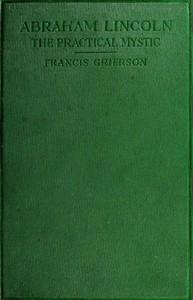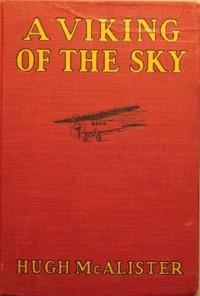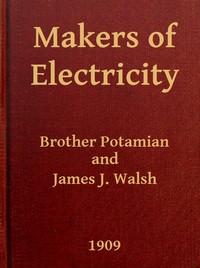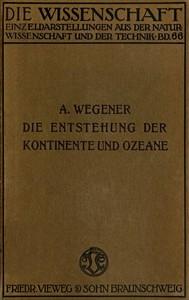|
|
Read this ebook for free! No credit card needed, absolutely nothing to pay.Words: 6083 in 3 pages
This is an ebook sharing website. You can read the uploaded ebooks for free here. No credit cards needed, nothing to pay. If you want to own a digital copy of the ebook, or want to read offline with your favorite ebook-reader, then you can choose to buy and download the ebook.

: Abraham Lincoln: The Practical Mystic by Grierson Francis - Lincoln Abraham 1809-1865 Psychology@FreeBooksWed 07 Jun, 2023 t some are doing publicly others are doing privately. The motives for this desire for material domination vary with the individual. With one, it is to get even with a group; with another, it is to get even with a party; with others, it is to appear in public, to be frequently named and sometimes applauded. Compromise and subterfuge are ingredients inseparable from the illusions of the Will. While Lincoln often assisted his friends, he refused to hedge or trim in order to please. Destiny behind him was invulnerable, his own sense of justice inexorable. While others were working for the good of their city, state, or section, he was thinking of the good of the whole country, with all humanity behind it. Destiny created the man and the crisis at the same time, as always happens. The one could not exist without the other. Destiny is the collective conscience acting through elective genius. For this reason Lincoln was not only the man of his time but the man whose example will exert the greatest influence on future eras. In the hubbub and confusion created by the upheaval which began in 1914 it is of vital importance for thinking people of the English-speaking countries to know what went on in the inner circles at Washington during that year of trial, 1864, when the destiny of the Union seemed to be hanging in the balance. It is time to know the truth about Lincoln's supernaturalism. Your favourite historian avoids the subject. He will not touch on a matter so dangerous to his neutral agnosticism. He avoids the details of the supernatural events of that wonderful time. He will discuss anything but that; he knows that once thinking people become acquainted with the facts they will begin to form their own conclusions. In Lincoln's day agnosticism had not taken root in the intellectual soil of this country. The negative writings of Darwin and Spencer were unknown among politicians and statesmen, and the churches still believed that "spirit" ruled matter and that Providence was directing the affairs of the nation. In Lincoln's time agnostic ministers were unknown. All believed in a positive religion. The Union was saved from disruption because Lincoln and his aids were firm believers in a higher Power and a higher destiny. Doubt, cynicism, and scepticism would have handed the country over to universal chaos. The downfall of the Union would have meant the end of the British Empire and to-day Kaiserism would be in supreme command of the remnant of Anglo-Saxon civilisation. It is the fashion to read romantic novels, but the story of the Jacquess peace mission is more fascinating than any novel because it is fact instead of fiction and because its basic element is the supernatural. James Jacquess was, himself, a practical mystic of no uncertain power but whose great gifts were overshadowed by the personality of Lincoln, his revered chief. Before the Civil War Jacquess was a mathematician, a Greek and Latin scholar, a college president, and one of the most forcible Methodist preachers of the age. His field of work was the country around Springfield, where Lincoln often heard him preach. Long before Jacquess received the mystical command to undertake his peace mission to the Rebel headquarters at Richmond, Lincoln knew and respected him as a sincere and earnest patriot. Jacquess was Colonel of an Illinois regiment during the war, and had already taken a valiant part in some of the most terrible battles. Colonel Jacquess was inspired to act as he did without, at first, consulting any one. He conceived the idea of going to Richmond, interviewing the Confederate leaders, and so gaining some definite information that would eventually lead to peace, through victory, for the Union. His mission was a secret, known only to a limited circle, including the President, General Rosecrans, General Garfield , and James R. Gilmore, the friend of Lincoln. Mr. Gilmore, in his "Personal Recollections of Lincoln," devotes many pages to this peace mission, with all the details, from its inception by Colonel Jacquess to its final wonderful results. General Garfield, writing to Mr. Gilmore from his military headquarters on June 17th, 1863, said:-- "Colonel Jacquess has gone on his peace mission. The President approved it, though, of course, he did not make it an official matter. There are some very curious facts relating to his mission which I hope to tell you some day. It will be sufficient for me to say that enough of the mysterious is in it to give me an almost superstitious feeling of faith, and certainly a great interest, in his work. He is most solemnly in earnest and has great confidence in his mission." Colonel Jacquess succeeded in gaining a respectful hearing before the highest authorities at Richmond without being shot as a spy--more than one of his friends having predicted such a fate for him. Free books android app tbrJar TBR JAR Read Free books online gutenberg More posts by @FreeBooks
: A Viking of the Sky: A Story of a Boy Who Gained Success in Aeronautics by McAlister Hugh - Aeronautics Juvenile fiction@FreeBooksWed 07 Jun, 2023

: Makers of Electricity by Potamian Brother Walsh James J James Joseph - Electricity Biography@FreeBooksWed 07 Jun, 2023
|
Terms of Use Stock Market News! © gutenberg.org.in2025 All Rights reserved.






